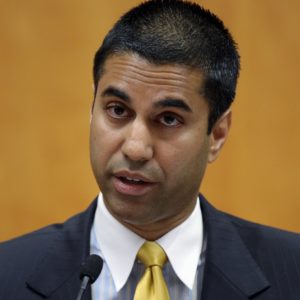Local governments have long charged cable service providers like Comcast and Verizon a variety of franchise fees which then get passed on to consumers’ cable bills.
The fees are usually considered to be in the public interest because they fund local news channels and public, educational and government access (PEG) channels. The franchise fees also serve as the “rent” for cable companies to use public land for cable infrastructure. Local governments would also charge a cable company like Comcast a fee so that Comcast could remain a monopoly in that area (these are known as exclusivity fees), but Congress banned these in the 1992 Cable Television and Consumer Protection Act.
(Since then many local governments have signed noncompete agreements with cable companies that give cable companies a monopoly over cable and broadband in those areas, effectively skirting around the ban on exclusivity fees and locking local governments into deals that result in less competition for better cable and broadband prices. In 2016, Wired reported that for apartment buildings, internet service providers, or ISPs, still try to cut exclusivity deals. Last year, the Federal Communications Commission opened an inquiry into the practice.)
But an FCC order passed on August 2 will now bar local governments from imposing fees greater than 5 percent of a cable company’s total revenue. The order is in line with the Cable Communications Act of 1984, which imposes a 5 percent cap on franchise fees.
For years, local governments have maneuvered around that 5 percent cap by requiring “in kind” contributions from cable companies, or charging fees for non-cable services.
“The statute [in the Cable Act] is quite clear on the matter and the item appropriately clarifies that franchises authorities can only regulate Federal Communications Commission cable services,” Republican Commissioner Michael O’Reilly said. “Today’s action closes off potential revenues for franchise authorities from non-cable services, which is the right statutory reading.”
For some cities in the Midwest, these “in kind” contributions are necessary just to keep basic public services functioning, like local news channels. But for some cities on the coasts — like New York City and Los Angeles — these “in kind” contributions are an easy way to “shake down” cable companies with consumers footing the bill.
Cable companies and some economists argue that if the FCC stopped local governments from charging so many fees, then broadband investment would increase. For consumers with financially healthy local governments, the FCC order could also help lower their cable bills. Those living in financially distressed areas, however, might not be so lucky.
“Many complain about the price of cable, but few realize that key culprits can be state and local franchising authorities (LFAs), whose taxes, fees, and surcharges on top of the basic price can account for 20 percent or more of the total price,”AEI visiting scholar Roslyn Layton wrote in February. “Franchise fees are on track to reach $8 billion by 2023, depriving operators of their incentives to invest, an amount that could cost consumers $40 billion in lost welfare.”
Now, any “in kind” contributions local governments require from cable companies will go towards that 5 percent cap, with the exception of “in kind” contributions for PEG channels.
“The statute [in the Cable Act] plainly defines a ‘franchise fee’ to include ‘any tax, fee, or assessment of any kind,'” FCC Chairman Ajit Pai said upon passage of the order. If local governments want to charge cable companies more, he said, then Congress should “change the law.”
The Democratic commissioners worry that the order could devastate local governments in financial distress. Commissioner Jessica Rosenworcel said she worries local journalism will take a severe financial hit, further jeopardizing an already shrinking industry. She also pushed back on the argument that the order would encourage broadband investment.
“You will not find a single commitment made to providing more broadband service in remote communities,” she said. “There is no enforceable obligation to expand broadband capacity. There is no agreement that any savings from today’s action is pushed into new network deployment. I fear this absence speaks volumes.”
Commissioner Geoffrey Starks called Pai’s reading of the Cable Act statute “expansive and unprecedented.”
“Thousands of federal, state, and local leaders have submitted substantive comments in our docket, pointing out how our action today will frustrate other important goals of the statute, and target certain terms negotiated into franchise agreements that are of great importance to local communities,” Starks said. “From free or discounted services to schools or government buildings, to institutional networks, or I-Nets, which are viewed as critical infrastructure by many cities and relied upon to support government functions and public safety communications, much is at stake.”
Before the FCC voted on the order, 227 Democrat, Republican and independent mayors unanimously adopted a resolution condemning the order.
In November 2018, a group of counties and cities from all across the country filed comments with the FCC arguing that if the FCC adopted such an order, “many, many local governments, both large and small, would either lose all franchise fees or lose all the benefits of cable franchise obligations designed to meet the needs of their communities, including PEG channels, I-Nets, and service to schools, libraries, and government buildings.”
On Monday, the town of Milton, Massachusetts filed comments with the FCC “strongly opposing” the order.
“Specifically, we oppose the conclusion that costs associated with the construction, maintenance and service of an I-Net fall within the 5 percent cap on franchise fees,” the town stated in the filing. “The Town of Milton would be forced to divert its resources away from core services to maintain the level of service PEG programming provides, drastically reduce the amount of PEG programming, or could stand to lose PEG programming altogether.”
Update: This post was updated on August 7 to clarify that Congress banned exclusivity fees in 1992.

